Close-up of the human brain is 'sliced' newly announced
These brain slices will provide more information for researchers to decipher the mystery of the brain.
Recently, scientists have conducted brain slices by Henry Molaison (1926 - 2008) - the only person in the world who has undergone temporal lobe removal surgery to treat control behavioral decline.
However, the removal of the medial temporal lobe (hippocampus hippocampus) above the ear caused him to suffer from Anterograde amnesia completely - a pathological condition that failed to produce memories after the event. causing memory loss.
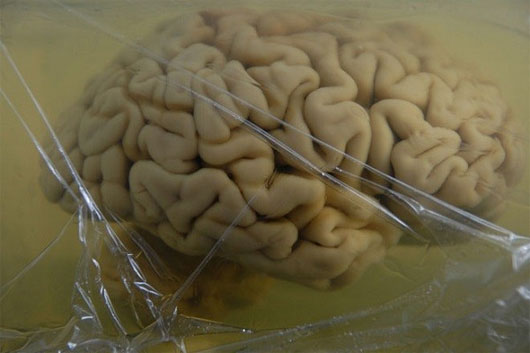
Brain image of Molaison before slicing
Therefore, Molaison was unable to create any new memories, he could only remember the events that occurred before the 1953 surgery.
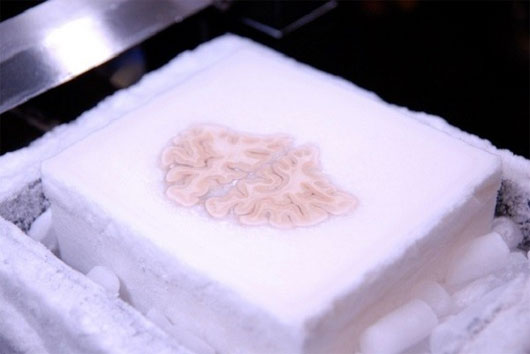
Brain cut images of Molaison
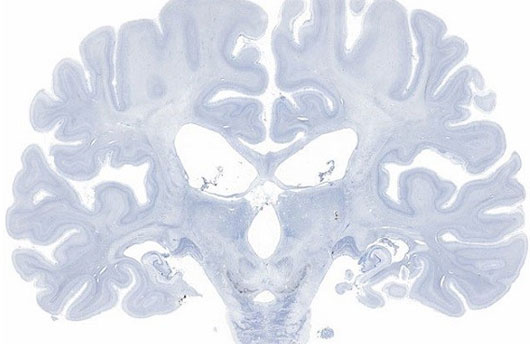
Neuroscience researcher Jacopo Annese said: "We conducted Henry Molaison's brain slices to better understand the lesions that store memories in his brain."
Henry Molaison's brain was preserved and cut 2,401 slices, each about 0.7mm thick. All stages, brain slices will be captured and used in creating 3D human brain models.
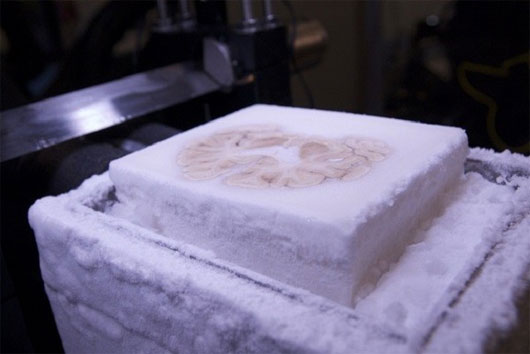
In this study, Annese and her colleagues measured the exact length of the defect in the brain and discovered that the affected part is even much larger than what is shown in brain scans.
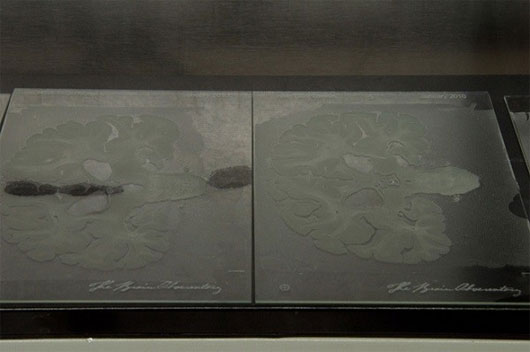
Under the microscope, scientists found that almost all connections from the hippocampus to the entorhinal cortex were removed. This has caused memory deficits in patients.

"These findings will help us better understand the medial temporal lobe and the areas of the brain responsible for storing brain memories," says brain researcher Neil Burgess of the University of London .
The research was published in Nature Communications.
- 'Human 2.0' version
- America spent 100 million USD to discover the secret of human brain
- Published a map of human brain
- Sliced bread - eat all day, but how does it come about, not everyone knows
- The brain and the wonders
- Shocking facts about the human brain
- 15 incredible facts about the brain
- 'Human brain' for the computer
- Set up the first 3D model of the human brain
- The mysterious area in the human brain was first known
- Successfully cultured human brain in the laboratory
- Computer processor mimics human brain
 Green tea cleans teeth better than mouthwash?
Green tea cleans teeth better than mouthwash? Death kiss: This is why you should not let anyone kiss your baby's lips
Death kiss: This is why you should not let anyone kiss your baby's lips What is salmonellosis?
What is salmonellosis? Caution should be exercised when using aloe vera through eating and drinking
Caution should be exercised when using aloe vera through eating and drinking